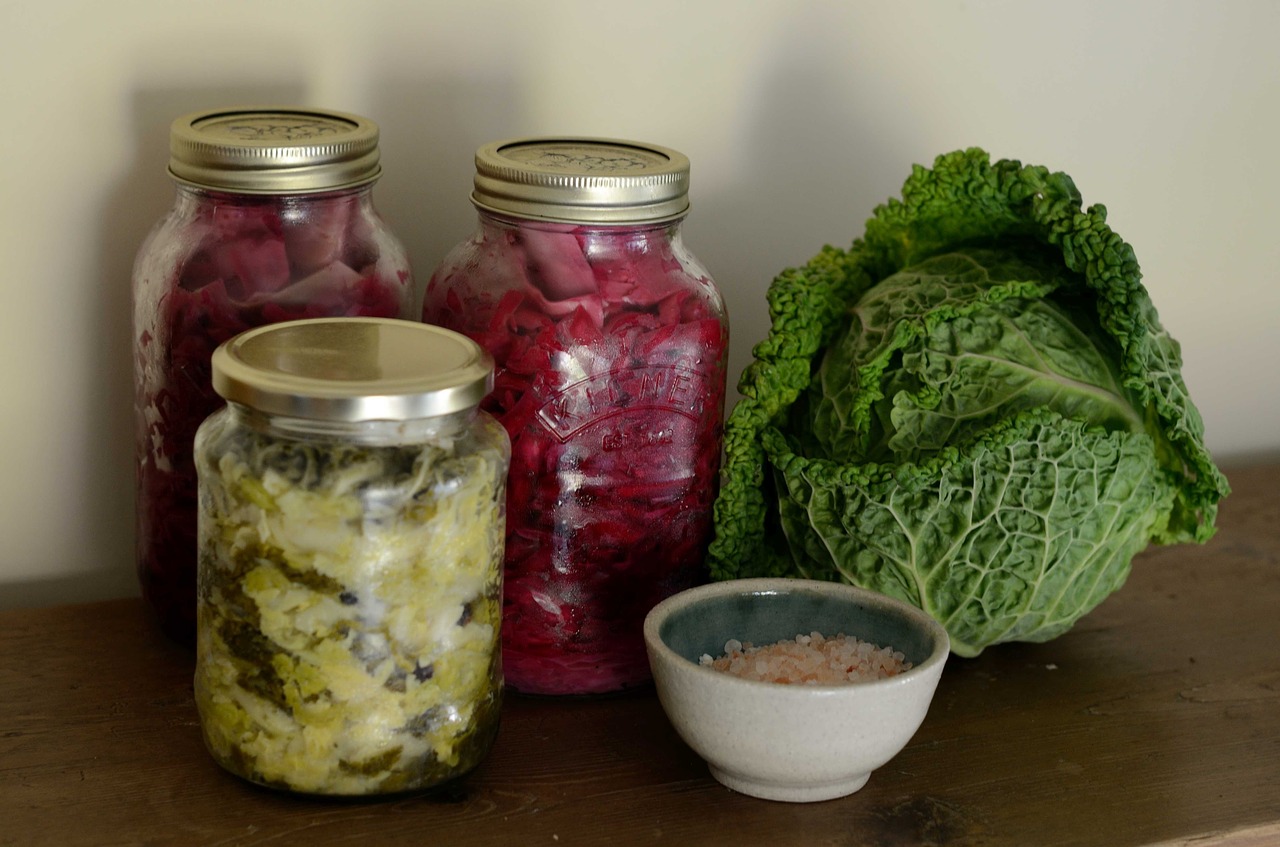1
Make fermented foods a staple in your diet.
Foods that have been fermented allow for the introduction of healthy gut bacteria into the digestive system to assist in digestive processes. Fermented foods themselves are easier to digest.
Fermented foods include:
- Kefir
- Sauerkraut
- Kim chi
- Organic natural yoghurt
- Kombucha
- Tempeh
- Miso
Probiotic supplements can also increase the healthy colonies of bacteria that reside in your digestive system.
2
Increase dietary fibre
Soluble and insoluble fibres are essential to a healthy gastrointestinal system and reduce constipation. It is important to keep hydrated any time fibre is increased. Additionally, fibre is an effective waste eliminator as it binds to waste materials along the gastrointestinal tract and takes it out of the body with bowel motions.
Psyllium husk is an easily accessible supplementary form of fibre that can be added to water, juice or cereal.
3
Embrace the power of Apple Cider Vinegar
Combat indigestion, reflux, bloating, gas by adding 1-2 tsp ACV and a squeeze of fresh lime juice to warm water prior to each meal.
4
Drink up!
Water that is…
Hard stools are never fun and being dehydrated is a significant factor in hard stools, straining and constipation. For most healthy adults more than 2L of water daily is recommended.
5
With pro come pre-biotics
Prebiotics are indigestible carbohydrates that are fermented by the healthy bacteria (probiotics) in the digestive tract. The fermentation process provides food or fuel for probiotics to enhance growth and functionality in digestive processes.
Prebiotic foods include:
- Artichokes
- Leek
- Onions
- Garlic
- Beans
- Asparagus
- Slippery elm
- Psyllium
6
Enzyme supplementation
No matter how perfect your diet may be, a lack of digestive enzymes will hinder your digestive capabilities. Supplementation with digestive enzymes prior to meals can assist in reducing the uncomfortable symptoms associated with poor digestion. You can obtain certain enzymes from foods such as, papaya, kiwi fruit and pineapple.
7
Herbal teas not cawfees
Coffee has stimulative and irritative effects on the gut, which can contribute to digestive discomfort, inflammation and diarrhoea. Herbal teas are soothing and nourishing to the gut and increase hydration. Certain teas such as ginger, peppermint, turmeric, chamomile and liquorice tea can reduce flatulence, decrease inflammation and bloating.
8
Mooove
Remaining active increases circulation and stimulates peristaltic muscle movements that push food around and through the digestive tract. Even short gentle exercise after meals can go a long way in the fight for a healthy digestive system.
9
Stress less
Stress is a significant driver in poor digestion. It seems strange and totally unconnected but, the energy that would normally be used in digesting foods is diverted to the brain and muscles to manage stressresponses.
Manage stress with:
- Deep breathing
- Meditation
- Epsom salts baths
- Adequate sleep
- Engaging in arts and crafts or any down-time hobbies

